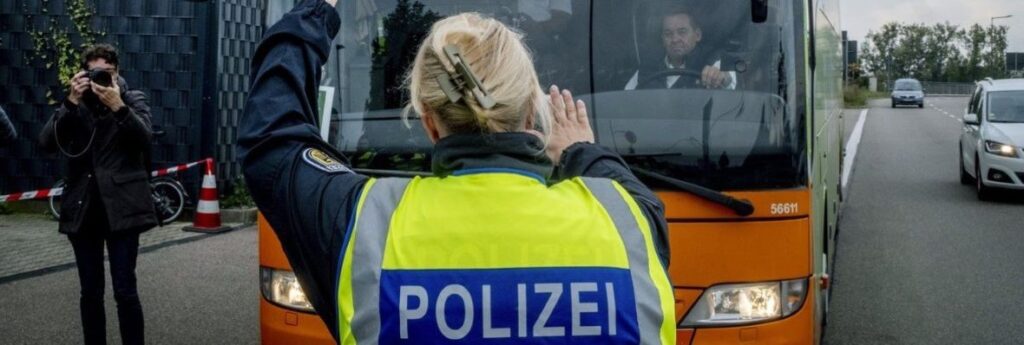Germany on Monday began random checks at its borders with five Western European nations as it seeks to crack down on irregular migration, expanding a system of mobile border controls that are already in place at four other borders. However, a return to a past system with closed borders and mandatory border checks for every person crossing the border is not in the cards.
The checks began at the borders with France, the Netherlands, Belgium, Luxembourg and Denmark are initially scheduled for six months. Germany has already been carrying out the checks at its borders with Poland, the Czech Republic, Austria and Switzerland since last year.
The border controls are testing European unity because the border checks are seen by some as a step away from the spirit of the EU’s free travel and trade arrangement known as Schengen. The freedom Europeans have to travel freely across borders for work and pleasure is one of the most beloved benefits of the EU.
Germany, the EU’s largest country borders more countries than any other EU member.
Still, German police say the expanded checks already pose a major challenge to them.
Andreas Rosskopf, the head of Germany’s Federal Police Union, said anyone crossing the border into Germany should now expect to be checked. But he also acknowledged that given the length of the country’s borders, police realistically won’t be able to stop and check every vehicle.
According to the EU, its 27 member states are allowed to temporarily reintroduce controls at the EU’s so-called internal borders in case of a serious threat, such as one to internal security. But it also says border controls should be applied as a last resort in exceptional situations and must be time limited.
Such limitations are often put in place during major sporting events, including the recent Olympic Games in Paris and the European soccer championship.

